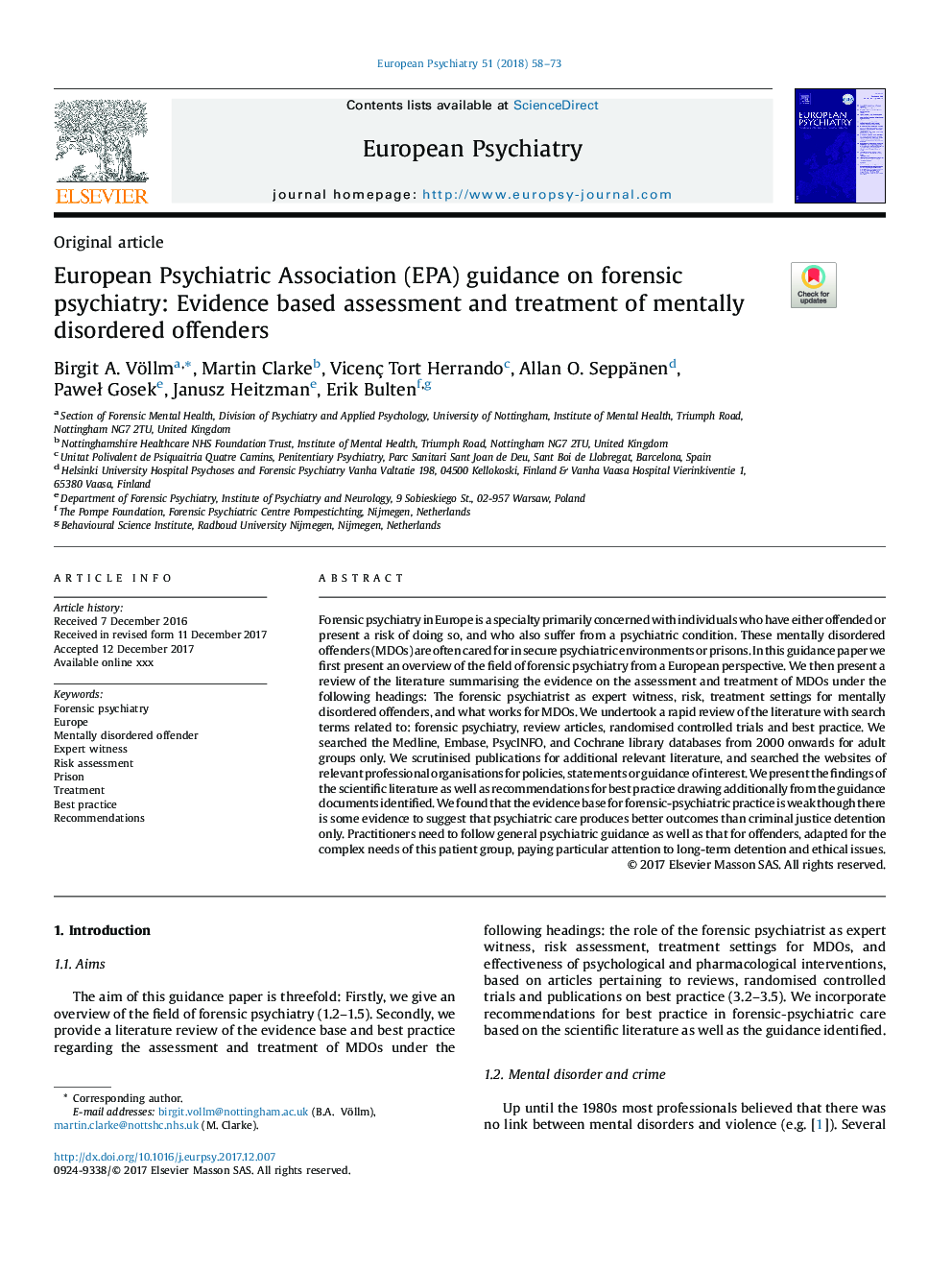| Article ID | Journal | Published Year | Pages | File Type |
|---|---|---|---|---|
| 8814812 | European Psychiatry | 2018 | 16 Pages |
Abstract
Forensic psychiatry in Europe is a specialty primarily concerned with individuals who have either offended or present a risk of doing so, and who also suffer from a psychiatric condition. These mentally disordered offenders (MDOs) are often cared for in secure psychiatric environments or prisons. In this guidance paper we first present an overview of the field of forensic psychiatry from a European perspective. We then present a review of the literature summarising the evidence on the assessment and treatment of MDOs under the following headings: The forensic psychiatrist as expert witness, risk, treatment settings for mentally disordered offenders, and what works for MDOs. We undertook a rapid review of the literature with search terms related to: forensic psychiatry, review articles, randomised controlled trials and best practice. We searched the Medline, Embase, PsycINFO, and Cochrane library databases from 2000 onwards for adult groups only. We scrutinised publications for additional relevant literature, and searched the websites of relevant professional organisations for policies, statements or guidance of interest. We present the findings of the scientific literature as well as recommendations for best practice drawing additionally from the guidance documents identified. We found that the evidence base for forensic-psychiatric practice is weak though there is some evidence to suggest that psychiatric care produces better outcomes than criminal justice detention only. Practitioners need to follow general psychiatric guidance as well as that for offenders, adapted for the complex needs of this patient group, paying particular attention to long-term detention and ethical issues.
Keywords
Related Topics
Health Sciences
Medicine and Dentistry
Psychiatry and Mental Health
Authors
Birgit A. Völlm, Martin Clarke, Vicenç Tort Herrando, Allan O. Seppänen, PaweÅ Gosek, Janusz Heitzman, Erik Bulten,
